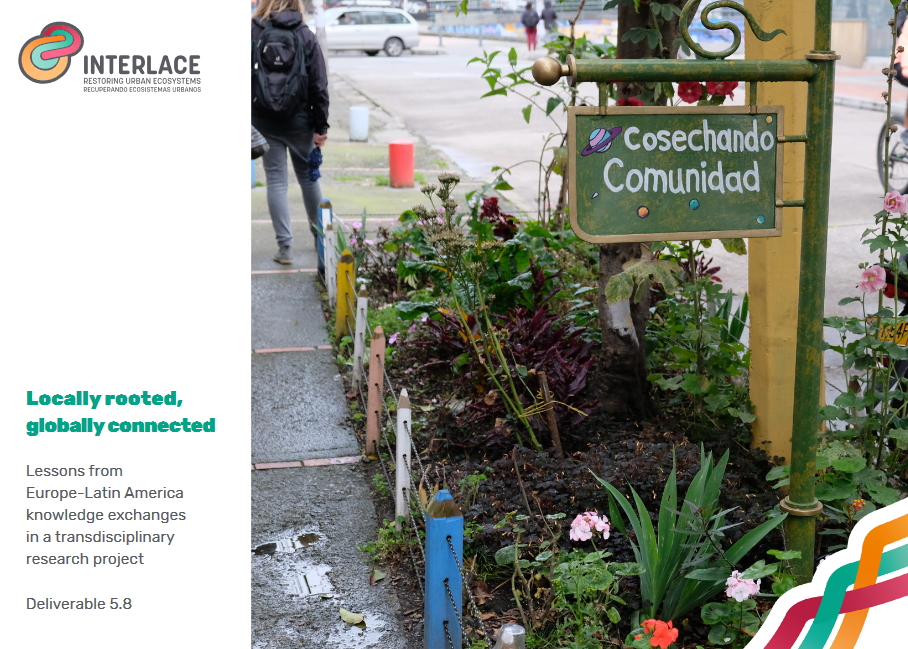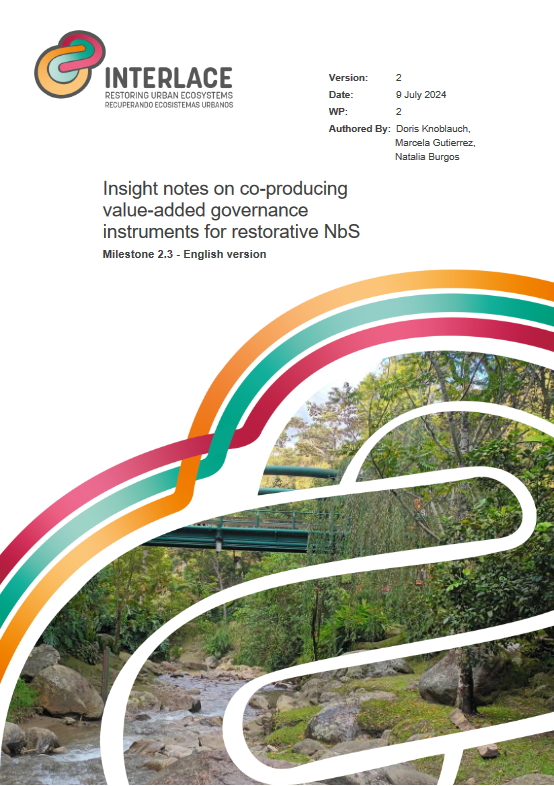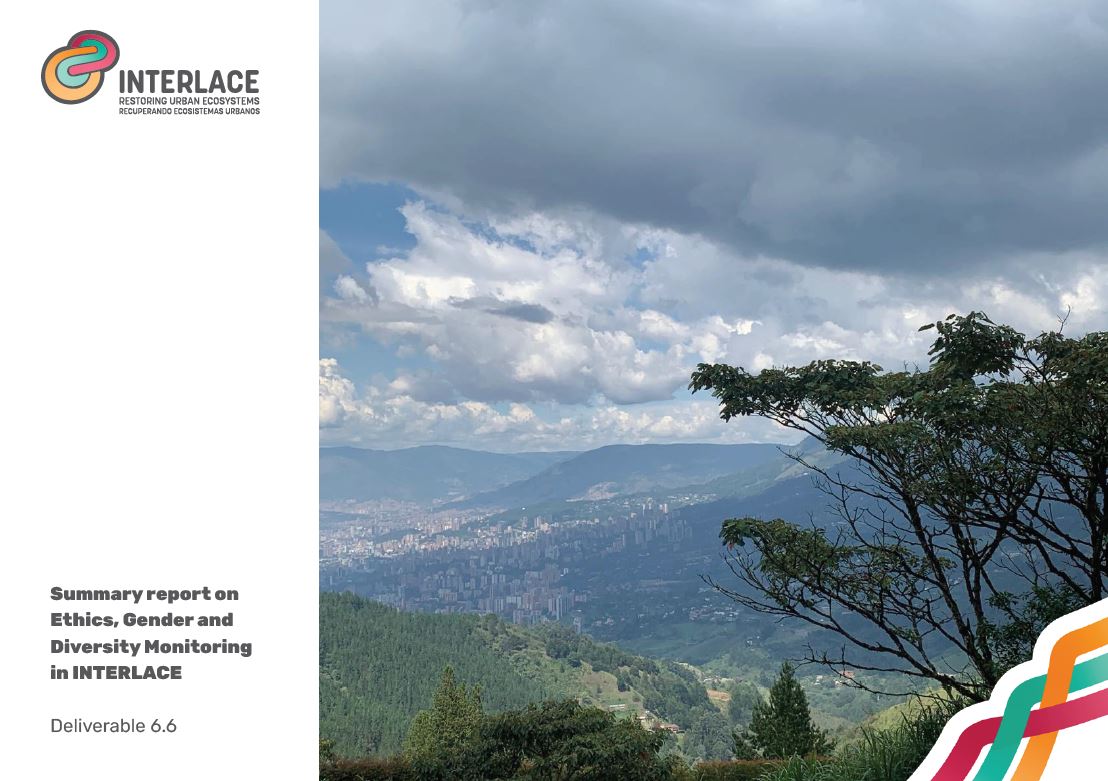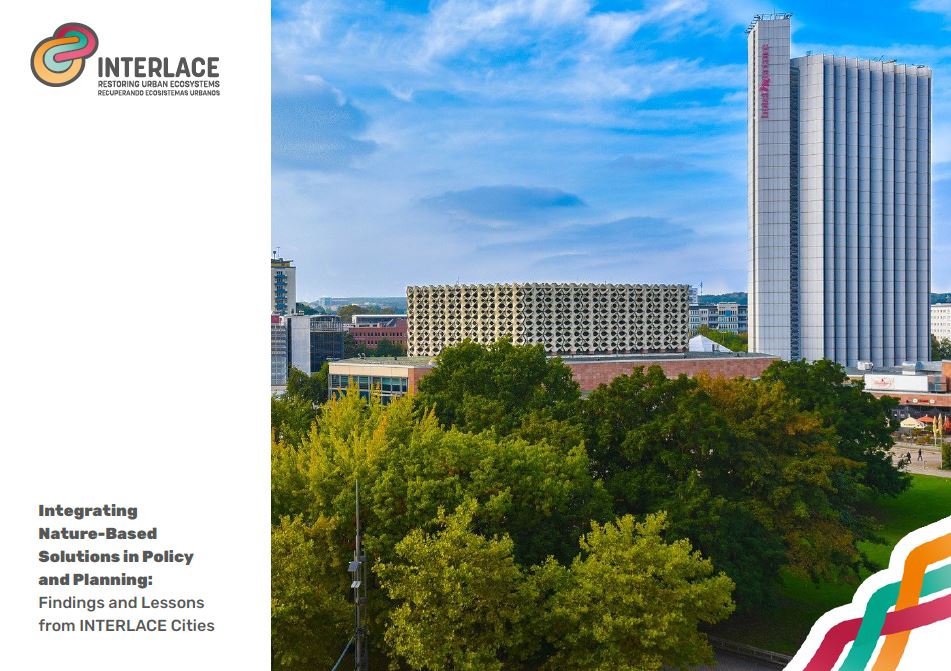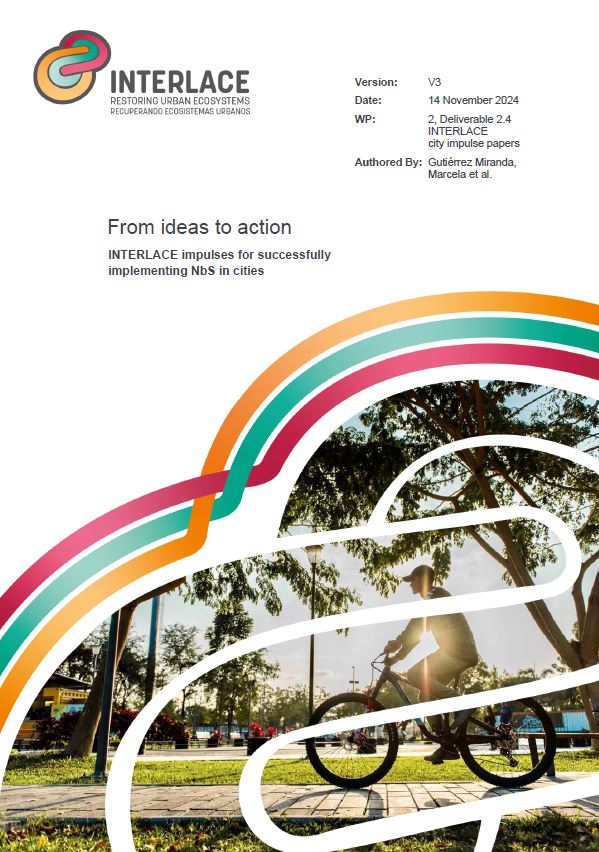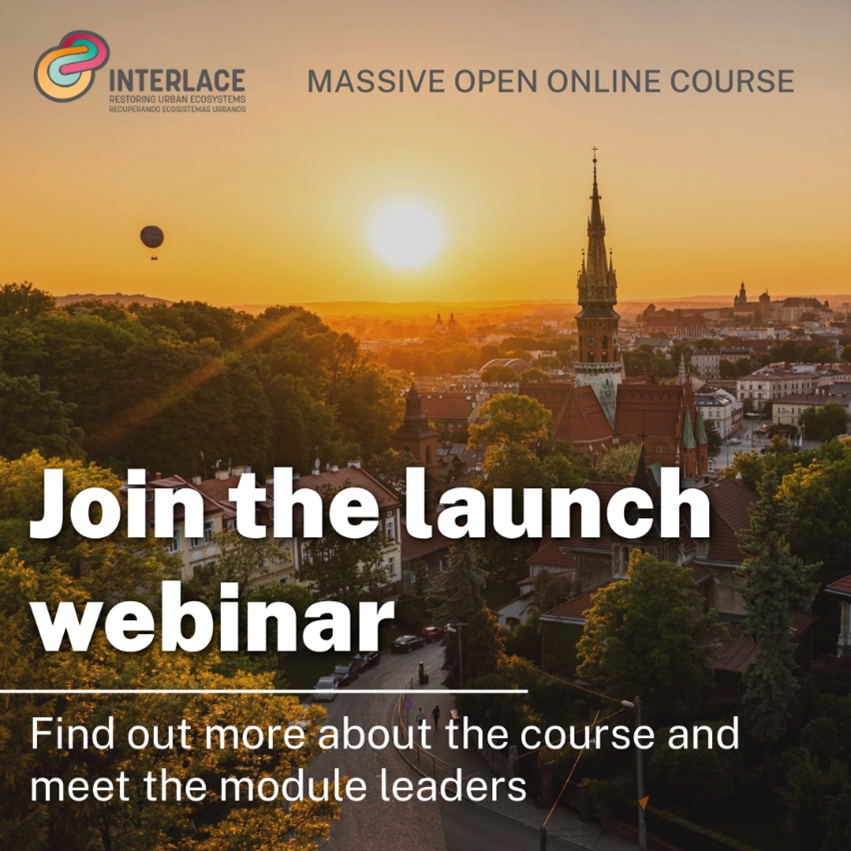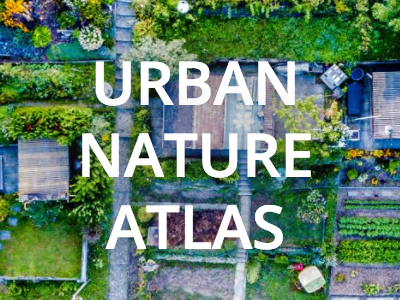Photo: Ewa Iwaszuk
International Cooperation to Restore and Connect Urban Environments in Latin America and Europe (INTERLACE)
- Project
- Research Program
- Duration
-
-
Cities and their peripheries are constantly confronted with challenges such as urban sprawl, climate change and pollution. These processes can exacerbate the degradation of natural ecosystems, and jeopardize ecosystem service provisioning with negative consequences for human health and well-being, biodiversity, social cohesion and equity, and, finally, city resilience. The INTERLACE project brings together a unique consortium of European and Latin American partners to contribute to effectively restoring and rehabilitating urban ecosystems to make cities more livable, resilient and inclusive. The project aims to advance knowledge and awareness of restorative nature-based solutions (NBS), such as the restoration of wetlands and rivers, as well as to foster more ecologically coherent and integrated city planning processes. In addition, it lays the foundation for sustained multi-directional cooperation and exchange between European and Latin American cities for wider transformative impact.
Nature-based solutions to restore urban ecosystems
Nature-based solutions (NBS) are particularly suitable for tackling the recovery of degraded, damaged, or destroyed ecosystems, utilizing nature to build resilience and provide environmental, social and economic benefits. Examples of NBS range from creating biodiverse forests to the introduction of new green and blue areas to refitting grey infrastructure and the creation of community gardens. NBS effectiveness relies on a transdisciplinary collaboration of actors to develop, maintain and monitor locally appropriate solutions. It also depends on enabling diverse and inclusive participation of local communities in co-production of solutions, while strengthening their relationship with nature.
Project objectives and activities: Enabling cooperation across continents
The overall aim of INTERLACE is to empower and equip European and Latin American cities to effectively restore and rehabilitate (peri)urban ecosystems towards more livable, resilient and inclusive cities. To achieve this aim, INTERLACE is active in four cities: Granollers, Spain; Envigado, Colombia; Portoviejo, Ecuador; Chemnitz, Germany and two intermunicipal associations: Metropolia Krakowska, Poland and the Corredor Biológico Interurbano Río María Aguilar-San José, Costa Rica. The project will support the cities' ambition to implement urban ecological restoration through NBS and will
- strengthen cooperation between European and Latin American communities of practice on urban ecological restoration and rehabilitation;
- foster participatory engagement to co-produce and promote ownership in constructing and monitoring restorative NBS;
- engage in capacity building measures for local governments to implement integrated and ecologically coherent urban planning and governance approaches responding to their needs and challenges and,
- raise awareness and understanding of the benefits of healthy (peri)urban ecosystems for social, cultural and economic wellbeing.
INTERLACE aims to strengthen cooperation and peer-to-peer interactions on the local, regional and global scales through the City Network Accelerator: a bespoke mechanism for stakeholder exchange and learning. The six partner cities are central to this process, providing and sharing experiences with other cities globally and building technical and procedural capacities. A web-based Innovation Hub will support these efforts by disseminating INTERLACE's results and the hands-on tools for urban decision-makers and planners created by the project.
The role of Ecologic Institute
Ecologic Institute is coordinating the overall project, which is funded under the European Commission’s Horizon 2020 Programme. Moreover, Ecologic Institute is leading the work package on governing restorative nature-based solutions in cities.




